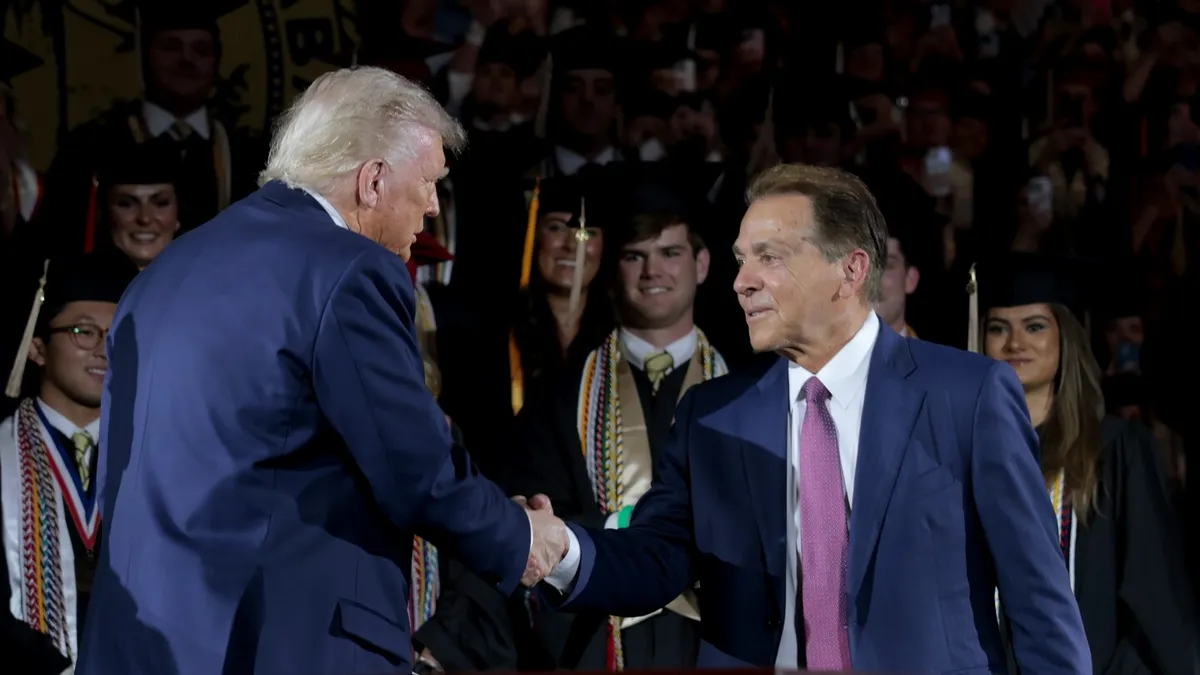
In a surprising turn of events, reports confirm that President Trump is set to establish a commission focused on college sports. According to TheAthletic.com, the commission will be co-chaired by renowned football coach Nick Saban, who has an extensive background with programs such as Alabama, Michigan State, LSU, and the Miami Dolphins. The second co-chair is anticipated to be a “prominent businessman” with significant connections to the realm of college athletics.
This development raises concerns among college athletes who have recently gained freedoms that were long denied to them. The formation of this commission, under the pretense of addressing issues created by a flawed system, is likely to favor institutions over the athletes, potentially undermining the progress made in college athlete rights. The risk is that the commission will shift the balance back to the schools' advantage, negatively impacting the players who generate substantial revenue through their participation in college sports.
Nick Saban’s perspective on the evolving landscape of college athletics has been clear and candid. Before his departure from Alabama, Saban expressed doubts about whether the traditional model could continue, pondering, “Maybe this doesn’t work anymore, that the goals and aspirations are just different and that it’s all about how much money can I make as a college player?” This sentiment reveals a striking hypocrisy, especially considering Saban’s history of maximizing his earnings as both a college and professional coach.
Previously, Saban voiced concerns that changes driven by the fallout from longstanding antitrust violations threatened the competitive balance within college football. However, this notion of 'parity' seemed to align more with his desire to maintain an advantageous position rather than genuine concern for fairness. Under the previous system, where resources were not equally distributed, Saban's teams thrived. He advocated for parity of resources, knowing he could leverage it to create a disparity in results through his exceptional recruiting skills.
In 2023, Saban advocated for implementing NFL-style rules in college football. However, it’s important to note that the NFL operates under a unique framework, negotiated by a union that functions as a multi-employer bargaining unit. This structure provides the NFL’s 32 teams with an antitrust exemption, enabling them to enforce rules around drafts, spending limits, and player mobility.
The union model provides a fair and effective way to address current challenges in college sports. Conversely, colleges seem to desire a dual advantage: restricting player compensation and mobility while avoiding the responsibilities that come with union negotiations. With Saban taking a prominent role in this forthcoming commission, he may push for legislation that would allow institutions to impose extensive rules without granting players the rights associated with collective bargaining.
If successful, Saban's influence in this commission could pave the way for his return to coaching, particularly if the new regulations do not hinder his earning potential or affect his ability to transition between schools. The balance of power in college athletics is at a critical juncture, and the decisions made by this commission may have lasting repercussions for players and institutions alike.